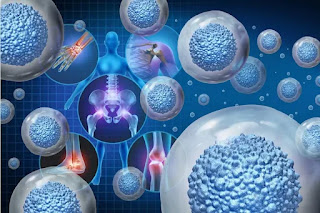Phase I clinical trial of new blocking antibody therapy shows promising results for the treatment of advanced medulloblastoma
Phase I clinical trial of new blocking antibody therapy shows promising results for the treatment of advanced medulloblastoma
Viable and safe therapies are required for medulloblastoma-;the most well-known sort of dangerous mind growth in youngsters ;particularly for patients whose disease has spread to the spinal string. A new stage I clinical preliminary drove by specialists at Atrium Health Levine Children's Hospital and Massachusetts General Hospital (MGH) has produced promising outcomes for another obstructing neutralizer treatment that objectives a protein basic to medulloblastoma cells' capacity to duplicate and spread. The discoveries are distributed in Clinical Cancer Research, a diary of the American Association for Cancer Research.
The neutralizer, called TB-403, perceives placental development factor (PlGF), over-communicated in certain kinds of harmful growths. The MGH research group recently showed that PlGF and its receptor neuropilin 1 (NRP1) are frequently overexpressed in human medulloblastomas and are expected for its development and movement in exploratory models in mice (Cell 2013). That work likewise showed that impeding the PlGF/NRP1 pathway in medulloblastoma models caused cancer relapse, diminished spread to the spinal string, and delayed endurance.
Past the new natural experiences, the exploratory outcomes were especially energizing since hindering PlGF, dissimilar to other malignant growth related pathways, was protected in people and consequently was an especially encouraging methodology in the pediatric populace. We are excited to see the underlying interpretation of these ideas into a clinical preliminary."
Rakesh K. Jain, PhD, senior creator, head of the E.L. Steele Laboratories for Tumor Biology at MGH and the Andrew Werk Cook Professor of Radiation Oncology at Harvard Medical School
The specialists' stage I, open-mark, multicenter portion heightening review enlisted 15 kids with backslid or headstrong medulloblastoma that didn't answer standard medicines. Patients got expanding dosages of the counter human PlGF immune response TB-403 (20 mg/kg, 50 mg/kg, 100 mg/kg, and 175 mg/kg), and all patients got two portions of TB-403 in the principal pattern of treatment. The most extreme endured portion ;characterized in clinical preliminaries as the most elevated portion of a medication that doesn't cause unsatisfactory poisonousness ;was not reached. Also, despite the fact that there were no fractional growth reactions (critical decreases in cancer size) in this therapy headstrong populace, seven of 11 patients experienced sickness adjustment ;stoppage of movement ;and which persevered for over 100 days in four of those patients.
The specialists reasoned that TB403 treatment was very much endured and prompted stable sickness in some medulloblastomas in a setting with no powerful therapies accessible.
"These discoveries show that treatment with TB-403 ought to be tried in bigger investigations of youngsters with cutting edge medulloblastoma and maybe at prior stages, in blend with standard treatments," says lead and relating creator Giselle L. Saulnier Sholler, MD, overseer of the Isabella Santos Foundation Solid and Rare Tumor Program and seat of the Beat Childhood Cancer Research Consortium at Levine Children's Hospital.
Extra review creators incorporate Dan G. Duda, Genevieve Bergendahl, David Ebb, Matija Snuderl, Theodore W. Laetsch, Jennifer Michlitsch, Derek Hanson, Michael S. Isakoff, Kevin Bielamowicz, Jacqueline M. Kraveka, William Ferguson, Peter Carmeliet, A. De Deene, and Lore Gijsen.
The clinical review was upheld by Oncurious NV and the Beat Childhood Cancer Foundation. MGH agents' work is upheld through awards from the National Institutes of Health, the Department of Defense, National Foundation for Cancer Research, Harvard Ludwig Cancer Center, Nile Albright Research Foundation, and Jane's Trust Foundation.
.webp)


Comments
Post a Comment